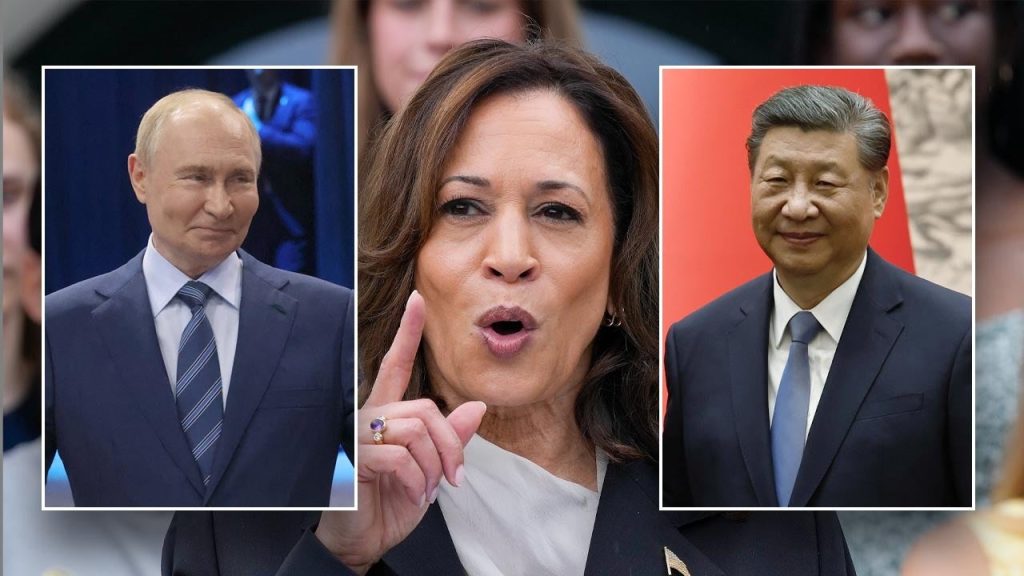National security experts are closely monitoring the reactions of the United States’ chief adversaries, Russia, China, and Iran, as Kamala Harris enters the race for the White House following President Biden’s announcement that he would not seek re-election. The sudden change in the Democratic front-runner has raised concerns that authoritarian leaders could take advantage of the “chaos” to advance their own agendas. Russia and China have not disclosed their reactions publicly, with the Kremlin stating that they were not surprised by Biden’s withdrawal, while Chinese officials maintained that the U.S. elections were an internal matter.
Questions have arisen regarding Harris’ qualifications in national security amid escalating global tensions reminiscent of those during the Cold War. Some reports have suggested that Russian President Vladimir Putin may prefer a Trump presidency, though experts are skeptical of Moscow’s true preferences. The sudden change in the 2024 presidential race has prompted concerns about how adversaries like Russia and China will leverage the situation to bolster anti-democratic arguments domestically. Harris, with limited foreign policy experience, may rely heavily on advisers, potentially maintaining similar approaches to major international issues as Biden, albeit with possible deviations on Middle East policies.
Doubts linger regarding how Harris’ potential presidency could impact U.S. foreign relations, particularly in areas like the Middle East, where her stance on Israeli Prime Minister Benjamin Netanyahu’s actions against Hamas in Gaza has drawn attention. Although Harris has taken a tougher stance than Biden on some Middle East issues, her exact approach remains uncertain, as does the overall direction her administration might take. Iran expert Behnam Ben Taleblu highlighted the implications for Iran during this transition period, citing the country’s expanding nuclear program, support for militant groups, and growing partnerships with nations like Russia as contributing to heightened security threats.
While Harris has not been at the forefront of international security matters during her vice presidency, her previous experience on the Senate Select Committee on Intelligence has provided her with insights into White House policy strategies and top-level intelligence. Experts are closely watching to see how Harris navigates major international challenges if elected, given her perceived lack of national security and defense experience. The sudden change in Democratic leadership ahead of the elections has prompted concerns about potential disruptions and vulnerabilities that adversaries may seek to exploit to further their own interests.
In light of the transition within the Democratic Party’s leadership, national security experts are closely monitoring how adversaries like Russia and China may seek to manipulate the situation to their advantage. Concerns have been raised about Harris’ qualifications in national security and her potential handling of major international issues, including relations with Iran and Israel. As the 2024 elections draw closer, the evolving dynamics between the U.S. and its adversaries will continue to shape the national security landscape, with experts emphasizing the need for vigilance and strategic preparedness in the face of global uncertainties and challenges.













